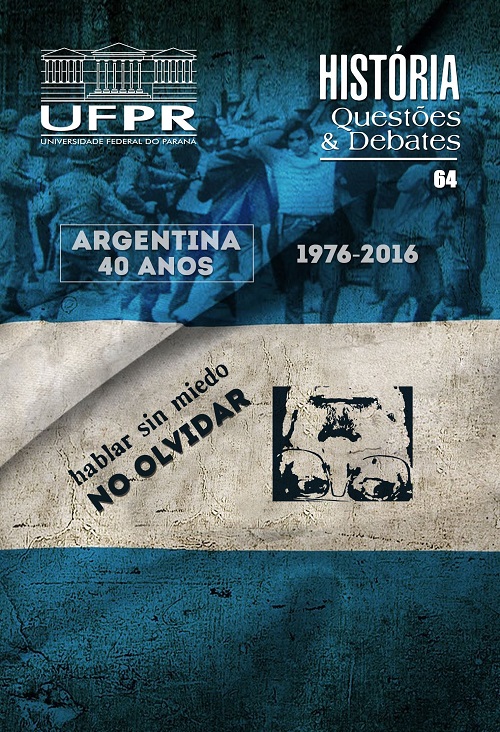Between history and memory. 40 years after the coup d’état in Argentina
DOI:
https://doi.org/10.5380/his.v64i2.49733Keywords:
Argentina, Forty years, Coup d’étatAbstract
This article historicizes the stages, since the last coup d’état, of the construction of the social memory of the dictatorship and the period of political violence of 1970s Argentina and its emblematic figure, the disappeared. It begins with a general outline of the quantitative and qualitative dimensions of the state violence that affected the country during this process, and goes on to examine the various political and institutional contexts that marked each stage of the social memory of these processes, the actors engaged in the struggles to give meaning to that past, and the key narrative and interpretative strategies deployed in such confrontations. The article proposes and demonstrates that the history of the social memory of the human rights abuses is not a direct result of the will of the power and. On the contrary, in the case of Argentina, the dominant memory has been and is a product of the initiatives of truth and justice proposed, at various junctures, by the human rights movement. That perspective was then taken over by various state governments. Instead, the proposals of forgetfulness and impunity, launched by several state governments were defeated by the hegemony built, in the public scenario, by the human rights movement regarding how to deal with human rights violations occurred in the country.
Downloads
Published
How to Cite
Issue
Section
License
Direitos Autorais para artigos publicados nesta revista são do autor, com direitos de primeira publicação para a Revista. Em virtude da aparecerem nesta revista de acesso público, os artigos são de uso gratuito, com atribuições próprias, em aplicações educacionais e não-comerciais.
Os textos da revista estão licenciados com uma Licença 
Creative Commons Atribuição-NãoComercial-CompartilhaIgual 4.0 Internacional.



